What does a productive day of writing look like for you? Do you have any habits or rituals that help you stay focussed or be more productive? I’m currently working on ritualizing 1,000 words a day minimum. I’ve been all over the place, ranging from zero to 8,000 in a single day. A good day is when I’m in a state of flow, when the words seem to come of their own accord. That only comes if I’ve been regularly writing for a few weeks. Habits right now are hard to form, because I have three toddlers. But I do have a special writing station, I have noise cancelling headphones and my favorite 16th century choral music station on Pandora, and sometimes, that works. "I do have a special writing station, I have noise cancelling headphones What is the greatest obstacle between you and your writing? Myself. Having a self-defeating mindset that feeds on internal negativity. Sometimes I can’t write. Then I hate myself. But recently I’ve gotten pretty good at just forcing myself to work through it. Still have some bad days, though. Your work is inspired by the Russian Folktales; I can relate as my work is based off the Norse Myths. Where does the writing process start for you: with an original idea or with the folktale? Good question! The folktale is the frame for me, the backbone. I don’t study it or read it; it’s inside me already, I grew up with them. So within that world that I know, I then start to think about original ideas inspired by the tropes of the fairy tales. If I’m stuck, then I’ll read a folktale I haven’t read before, and often I’ll get weird tangential ideas for mythical creatures or obstacles or conflict that way. It’s fun. "The folktale is the frame for me, the backbone. I don’t study it or read it; it’s inside me already, I grew up with them."
But there’s something about them that engages very intrinsic parts of human beings, no matter what the culture. Tolkien talks about this, modern neurobiology confirms it with interesting studies on brain scans. Basically, there’s something about fairy tales that can tell a deep truth in a way that goes straight to the heart, sometimes even bypassing the brain. It’s some like incantation or music, which is more experiential than rational. "there’s something about fairy tales that can tell a deep truth in a way that goes straight to the heart, What is next for you creatively? Do you have another project on the go? I’m taking a very long time editing book 4 of my series, which is a novella, but has taken longer than almost any other book I’ve written. It’s got a lot of emotional stuff in it, which I need to get right. And I’ve been battling… what do they call it? crippling self-doubt? Something like that. I’m also working on a screenplay with another writer, a historical fantasy set in the early days of medieval Russia, when the Russians were basically Vikings. It’s been fun. Where can we find more about you and your work? I blog about Russian folk history and culture, and I write book reviews on my website, where you can find all my books as well. You can also find me on Facebook, Instagram and Pinterest, where I share images that inspire my writing. Read more from Nicholas and find his Raven Son series on his website.
0 Comments
Much like the mythic Spring of Eternal Youth, the secret source of humanity’s ability to be creative continues to evade us. However, there is another question that I think can be answered: When do ideas appear? The answer to that question, and our willingness to adjust our lifestyle to it, may be the ‘secret’ that so many seek. So if you are not currently living a creative life and would like to I am offering a concrete, cost-less step that you can take on that journey. "If you are not currently living a creative life and would like to The Other Big Question: When do ideas appear? My Answer: Microspaces. Microspaces, as I define them, are all the insignificant moments of the day. Taking the elevator. Stopping at a red light. Brushing your teeth or standing in line at the grocery store. Tying your shoes. Sitting on the toilet. Microwaving your lunch. Waiting for the bus. Watching a laggy webpage load. Microspaces offer brief moments of mental liberty. They are the empty ‘inbetweens’ in our days that so easily go unnoticed. They are the white space between the letters. They are the silence between notes. They are the breaks in the pattern and the place between strokes. "Microspaces offer brief moments of mental liberty. In my experience these microspaces are exactly when my best ideas appear. Not during dedicated brainstorming sessions. Not during my scheduled writing time. Not while doing research or hammering out words on the keyboard. They float into my mind during those empty moments. But look carefully at the microspaces listed above and you may find that those moments are not so empty for you.
When all the white space on the page gets filled the text fades into chaos. Without the silence between notes the concerto becomes a cacophony. But that is how most people are living right now and human creativity suffers for it. So what’s the good news? We are all in control of how we manage our microspaces. "Advertisers and developers pride themselves on filling every unclaimed surface and second in our lives with noise." If you are serious about being a creative person you need to actively cultivate your microspaces. Don’t fill every moment looking at a screen or gawking at photoshopped models in advertisements or on magazines. Just let your eyes rest on those round buttons in the elevator. Stare at the seagulls outside while you wait in line at the store. Don’t make a habit of checking your phone in the bathroom and look out the bus window rather than up at the ads. "If you are serious about being a creative person you need to actively cultivate your microspaces." Nothing has been more rewarding in my creative journey than protecting my microspaces from mental clutter, but don’t interpret this advice as dismissive of the hard labour that goes into being creative. Ideas are raw materials that need to be shaped and refined through hard creative labor. However, if you don’t allow room for microspaces in your day you’ve cut yourself off from that mysterious spring of ideas somewhere beyond our reach. Embrace your microspace. To experience the benefits of microspaces in your creative journey Joshua challenges you leave your phone turned off for a day.
To become a novelist has been a dream of mine since I was in single digits. I couldn’t tell you exactly why, but I have always romanticized the idea of being able to walk out on my porch with my laptop to write while I smell the ocean breeze. I do think my numerous experiences help to enrich my character development. "I do think my numerous experiences help to enrich my character development" How do you manage your writing schedule and where do you write? Are you highly structured or are you more flexible with when and where you fit your writing time in? Do you write at home or some other place? I almost always write at home, and if I am writing draft one of a novel, I must be at my desk with a quiet environment or with my sound canceling headphones on. The time of day isn’t as important, only that I am uninterrupted in this process. I tend to get very into the scene and very into the mood of the character, so even answering a quick question, like, “Mom, where is the extra tissue?” can take me half an hour to recover from. Now, I am a lot less rigid with short stories. I can set up in a coffee shop or anywhere around the house and dump those out. Horror as a genre can be quite polarizing but has always drawn a steady readership. What do you think draws people to Horror fiction and what important things can Horror fiction offer readers who don’t usually read the genre? I think people are drawn to Horror for different reasons: the adrenaline, for the relief after the scare, for the tropes or monsters themselves. I have always liked to challenge myself, and my first scary movie terrified me, so it became a challenge from that point forward for me to be able to watch scary movies without covering my eyes. For those who don’t typically read the genre, I think many would be surprised to find out how much real life resides amongst the terror; I think, too, that many would be surprised at their ability to stare the monster in the face. "For those who don’t typically read the genre, I think many would be surprised
"I often come up with an idea after I have heard a certain song One of my favorite things about my primary source of inspiration, the Norse Myths, is the monsters: trolls, giants, dragons, sea serpents, wights, etc. What is your all-time favorite monster and why? My favorite monster? That’s hard, it’s a battle between dragons and werewolves, but I feel like I would have to say dragons. I watched Dragon Heart with my father when I was very young, and I have loved them since. Smaug in The Hobbit was just gorgeous, and when Hagrid had his baby dragon, I really wanted my own. Why? Because they are just the coolest! I want to be a dragon so I can live a long time and sleep on a pile of gold. One of the things that so many new authors get wrong is writing scary scenes; often they are more farcical than fearsome. Do you have advice for writers from any genre that want to add suspense through scary scenes in their novel? It’s hard to remember, in writing, that a scene should not be approached like it would in a movie, that you aren’t just going for a jump scare, and that the reader can’t “see” the dim light or the thunderstorm going outside, so you have to make them feel it. Get into the reader’s mind, make sure they sense the tension building allllllll the way until you reach that climatic moment where the jump actually happens so that their nerves are already on end and their stomach in knots. That’s when you release the big bad scare and really hit them hard. "the reader can’t “see” the dim light or the thunderstorm going outside, so you have to make them feel it" You currently have two titles available on Amazon: Brenna’s Wing and Blood Drops. Do you have any advice for writers considering self-publication through Amazon? Phew. That’s an open-ended question that could be discussed for hours. It isn’t easy. There are a lot of i’s that have to be dotted and t’s that have to be crossed. Pay attention to detail; have several beta readers read your work; design your cover, let it sit, work on it more, get feedback, then work on it more; comb your manuscript over and over for spelling and punctuation; figure out a formatting method that works for you (With Brenna’s Wing, I used Microsoft Word only and that was a headache and a half. With Blood Drops, I used Scrivener, which made it a lot easier [after I figured out how to use it].); don’t formally announce your book until you have the pre-order available - the internet moves fast and so do attention spans - you want people to be able to buy it right then and there when you make your big announcement; but do offer a pre-order option, if you can get a good handful of pre-orders before your book drops, it helps start you higher in the rankings. That’s all I have for now. Anyone with any specific guidance questions are welcomed to reach out to me. "if you can get a good handful of pre-orders before your book drops, Find Blood Drops, W.B. Welch's chilling collection of short horror stories, on Amazon.
In a viking’s mind the sword lay next to the spoken word. Wielding words with skill was as important as wielding a blade; a clumsy phrase could lead to more bloodshed than a misplaced sword stroke. If injury was intended then every viking knew that a well-crafted insult aimed at an enemy could fly farther and sink deeper than any hand-fletched arrow. Intelligence could be measured by one’s ability to interpret poetic riddles and, for those seeking glory, a deed enshrined in verse would outlast the richest treasure. Therefore, no study of the Viking Age could be complete without considering their poetry. "a clumsy phrase could lead to more bloodshed than a misplaced sword stroke"
The end-rhyme pairs love/of and day/say in an ABAB scheme satisfy, to the modern ear, what poetry should ‘sound’ like. Each line has either six or seven syllables which demonstrates a fair amount of consistency between lines. "Modern song lyrics and traditional Western poems are primarily defined by By contrast, the skaldic poetry enjoyed by vikings centered around internal rhyme and alliteration instead. Both of these were made easier by the fact that Old Norse as a language has less phonetic diversity than modern English. Since there are literally fewer sounds within the language it is much easier to find rhymes and alliteration in Old Norse. Skaldic poetry also featured over one hundred distinctive structured verse forms, each of which had its own strict set of rules. One of the most popular forms was dróttkvætt, also known as ‘court metre’. "the skaldic poetry enjoyed by vikings centered around internal rhyme and alliteration" While it is nearly impossible to re-create within the English language I will give an approximation of my own making based on a set of five dróttkvætt-like rules.
With those five rules in mind, here is an example of how they can be applied and what (with a great stretch of the imagination) viking verse might have sounded like. Attempt to construct a verse of your own with these five rules and you’ll find it a synapse-stretching task. However, a skald would not consider the verse above to be dróttkvætt at all as it does not strictly follow the additional rules of the form. In conversations with doctoral students of Norse literature I have heard these skaldic forms described as ‘hyper-complex’ with ‘draconian rules’; however, Viking Age skalds were famed for being able to improvise such forms on the spot. “skaldic forms [were] ‘hyper-complex’ with ‘draconian rules’; however, In addition to these challenging structural complexities skalds were famously known for their use of a unique poetic device known as a kenning. Kennings were metaphorical phrases that alluded to Norse myth and culture. For example, the ‘whale road’ is a kenning for ‘the ocean’; the ‘sea of swords’ is a kenning for ‘battle’; ‘Freya’s tears’ is a kenning for ‘gold’. The best skalds might employ a double kenning, a reference to a reference. A phrase like ‘the venom of the battle snake’ employs the kenning ‘battle snake’ for ‘sword’, presumably making its ‘venom’ a kenning for ‘blood’. Therefore, by saying ‘the venom of the battle snake’ the skald simply means ‘blood’. While triple or even quadruple kennings may have existed, scholars such as Peter Hallberg declare that the intimate knowledge of Norse culture and skaldic traditions needed to decipher these kennings makes them practically inaccessible to the modern reader. “Therefore, by saying ‘the venom of the battle snake’ the skald simply means ‘blood’”
For more on poetry in the Viking Age Joshua recommends Old Icelandic Poetry: Eddic Lay and Skaldic Verse by Peter Hallberg.
"When I got a little older I discovered the Drizzt Do’Urden series (R.A. Salvatore) and was blown away. What year would I go back to for a single day? 2016. I don’t remember the exact day, but Chris Cornell (lead singer of Soundgarden and Audioslave), my favorite musician ever, performed a solo show near my apartment. I missed it because “I had work.” He died a year later, two days before I was going to see Soundgarden headline my favorite rock festival. My brother said the show I missed was the performance of a lifetime. I still haven’t gotten over it. You’re asking me a question about beer? Best interview ever. I have celiac disease, so I’m not supposed to drink most beer because the barley it’s brewed from contains gluten. I don’t get sick from beer (like I would with solid food), but it’s still not good for me. I drink gluten-free beer as much as I can, so Two Brothers Prairie Path is my default, but if I can find it, I’ll buy and hoard gallons of Omission IPA. It’s phenomenal. If I’m drinking outdoors, at a concert, etc, I’ll go with Miller Lite, because I have no self esteem. Whatever you do, though, stay away from Beer 30 Ice. Yes, that’s a real beer. It makes Hams and Natty Ice look like craft beer. That shit (can I curse?) is the devil. Unless you’re in college, in that case, it costs about $11 for a 30-rack, and it’ll leave you with some hilarious stories the morning after. Enjoy. What does a typical writing day look like for you? When and where do you do most of your writing? I’m a personal trainer, which means 12-13 hour days are the norm. I write a lot on my phone, whether it’s on the train, on my lunch break, etc. The 300-word sessions add up, and sometimes that’s all I can do for the day. Also, I find fewer grammatical errors when I write on my phone, and sometimes my prose is noticeably better. I think the slower pace helps me think, and because of the narrow screen view, I can zoom in on a single sentence and really dive into the mechanics of it. Try it, I swear I’m not crazy. On the weekends, I like to wake up around 8 or 9, crank up Spotify (rock, grunge, & metal), and pound out a good few hours. If I’ve got nothing planned, I’ll write and edit all day. My process is really chaotic and I’ve learned to accept that. Last month, I wrote for maybe 20 hours total. Last weekend, I wrote for over 20 hours.
"My training definitely serves as a compliment to the writing. I think there are many lessons from powerlifting that could benefit writers, or anyone, really. I could probably write a whole article about this concept alone, but I’ll keep it brief. Powerlifting is all about relentless improvement and absolute accountability. The human body doesn’t lie. You lift the weight or you don’t. There’s no subjectivity. No gray area. Success or failure. You’re the product of all your effort, nothing more, nothing less. It’s all discipline, humility, and mastery. I think anyone can benefit from applying those principles. As a fantasy writer myself, I know the genre often gets a bad rap in the writing world for not being ‘literary’ enough. What draws you to write fantasy and what is your response to that attitude? If generalizing an entire genre makes those people feel superior, good for them. I can find a bunch of “literary fiction” that’s nonsensical drivel, but that doesn’t make the whole genre worthless. I get it, there’s plenty of bad, shallow fantasy out there. Just like there’s bad, shallow sci-fi, mysteries, thrillers, romance, westerns, drama, suspense, horror, etc. But there’s also really great fantasy that explores complex themes like religion, politics, social status, race, friendship, love and relationships, death and the afterlife, the human condition, and much more. You just have to find it. And even if it’s “not literary,” who cares? Obviously, the fans don’t, and they’re the target audience, so they’re the ones who matter to the writer. There’s not some objective marker of merit, literary or otherwise. I love writing fantasy for three main reasons: 1. Sword fights. I’m not too proud to admit that I love the primal savagery of two people with conflicting goals settling their differences with steel in their hands. I wrestled, boxed, and trained in MMA for a while, and I enjoy exploring the motivations, applications, and consequences of physical violence. IN FICTION. Don’t fight people in real life, that’s just being a jerk. 2. Worldbuilding. I love the idea of designing a world from the ground up. Creating environments, geography, kingdoms, societies, customs, religions, rituals, and of course, the people who bring the world to life. With that, there’s plenty of potential to explore all those things that the literary snobs claim fantasy lacks. Oh, and did I mention MAGIC? Yeah, magic is great. I can’t wait to introduce it later in my series. 3. This is sort of a combination of the previous two, but when you can design any type of people/society/culture/kingdom you want, your potential for conflict is limitless. And because of the nature of medieval/fantasy worlds, often quite harsh and brutal, the way that conflict gets resolved is often very compelling. Today, if someone catches their friend stealing from them, it’ll result in a fight, or police involvement at worst. In a medieval world, the thief would be lucky to leave with their life, let alone their limbs intact. High stakes, I guess you could say. In my novel The Gatewatch the characters are inspired by the idealistic Viking ethos of boldness, cunning, and courage. In Sundering, the first book of your Shattered Fates Series, the main character Rylar is an unapologetic stoic. Was there a particular historical warrior code that helped to inspire this character? Rylar commands The Vanguard, which is a small but elite standing army. The Vanguard were aesthetically modeled off Spartan/hoplite warriors (heavily armored, spear, sword & shield, formation warfare). However, their functionality is based off modern special forces; their training is rigorous and brutal, they can function efficiently in small groups, and they have a strict hierarchy and can deploy extraordinarily quickly compared to other armies of that time period. Rylar, being their commander, is the epitome of what it means to be Vanguard. Unquestioning and uncompromising, he’s the consummate soldier, which ultimately proves an asset and a weakness. Having suffered much during his early life, and with only The Vanguard to cling to, he learned to bury everything so he could keep pushing forward. For him, to voice weaknesses, fears, and failings is to make them real. I think Rylar’s personal code evolved out of necessity rather than him consciously embracing any particular philosophy. "The Vanguard were aesthetically modeled off Spartan/hoplite warriors... their functionality is based off modern special forces; their training is rigorous and brutal, they can function efficiently in small groups, and they have a strict hierarchy and can deploy extraordinarily quickly compared to other armies of that time period." Dakstaan, one of the other characters in Sundering, speaks with a distinct dialect. How did you create the rules for his particular pattern of speech and do you have any advice for writers who want to use dialects? Dakstaan is from Rastaad, a northern country based on Scandinavia. There’s an archipelago called the Faroe Islands off the coast of Denmark where their dialect sounds Irish, despite being Scandinavian. Dakstaan’s accent is based off this, although not all people from his homeland speak as bizarrely as him. In addition to being foreign, he’s uneducated, and so his dialect is formed from both a heavy accent and the common speech of the peasants. He frequently leaves off the “g” on “ing” words, slurs words together (tell him = tell’im), and says “me” instead of “my” like the uneducated commoners. Other characters from the same country have their speech written normally, and it’s only mentioned in narration that they have an accent, which in their case, mirrors a Swedish or Norwegian accent (think Ragnar in Vikings). If you’re creating accents, establish the geography, general ideas of the language, and rules beforehand. For example, Dakstaan frequently uses Rastaadian sentence mechanics. Proper/common: I’ll see you later. Dakstaan: I’ll be seein’ ye. An anachronistic phrase, but you get the idea. He frequently puts things into present tense instead of a more digestible manner of speaking because that’s how his native tongue works, just like my mother (born in Colombia), says “control remote” instead of “remote control.” Once you have your general rules and ideas, create a directory of exact phrases and words and how you’ve written them, and use that as your reference point any time you write a scene with that character. Then double, triple, and quadruple check your dialogue with them. It’s so easy to forget the dialect and type a word correctly, and then miss it during editing because it’s invisible to us since the word is actually correct. Once you have your general rules and ideas, create a directory of exact phrases and words and how you’ve written them, and use that as your reference point any time you write a scene with that character.
You are currently in the throes of querying agents and publishers for your novel Sundering. Do you have any advice for writers who are in the midst of querying for their first novel? This is a tough one, because I haven’t gotten an agent yet, so I’m still in the midst of learning just like everyone else. Here’s a few basics, in no particular order. 1. For your pitch, cut to the core of your story. Character, desire, obstacle/conflict, stakes. Lay that out as cleanly as possible. 2. Do your research. Check the submission guidelines. Follow directions. We aren’t special. 3. Get someone to proofread your query. 4. Don’t take rejections personally. Writing is a business. Don’t publicly vent about your 58’th rejection on twitter. Agents are on twitter. Catch my drift? 5. Spend a lot of time on Queryshark. "Writing is a business. Don’t publicly vent about your 58’th rejection on twitter. Agents are on twitter. Catch my drift?" Find more short stories, book excerpts, blog posts, and book reviews at www.calplogan.com.
|
AuthorJoshua Gillingham is an author, editor, and game designer from Vancouver Island, Canada. Archives
April 2022
Categories
All
|

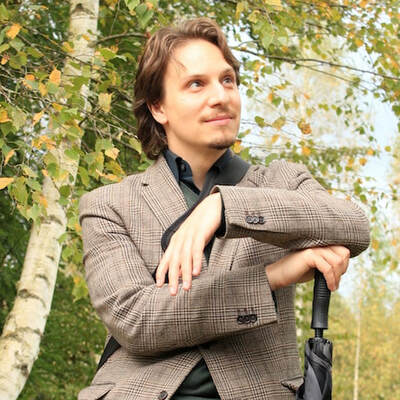
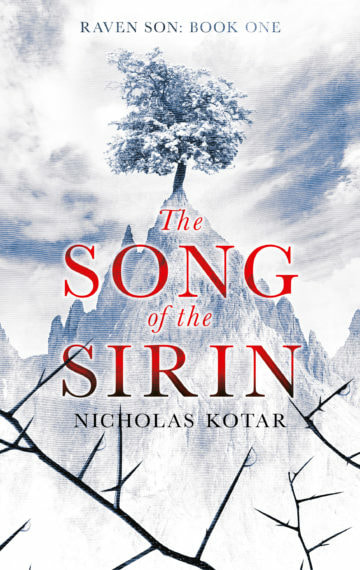


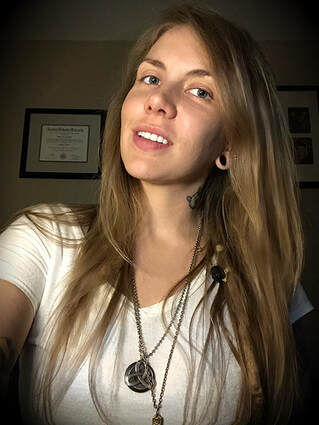
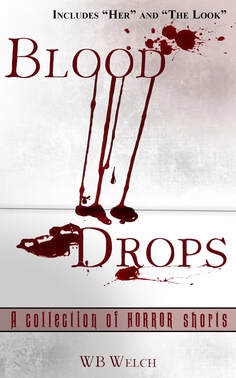


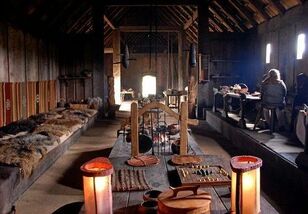
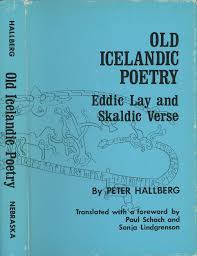

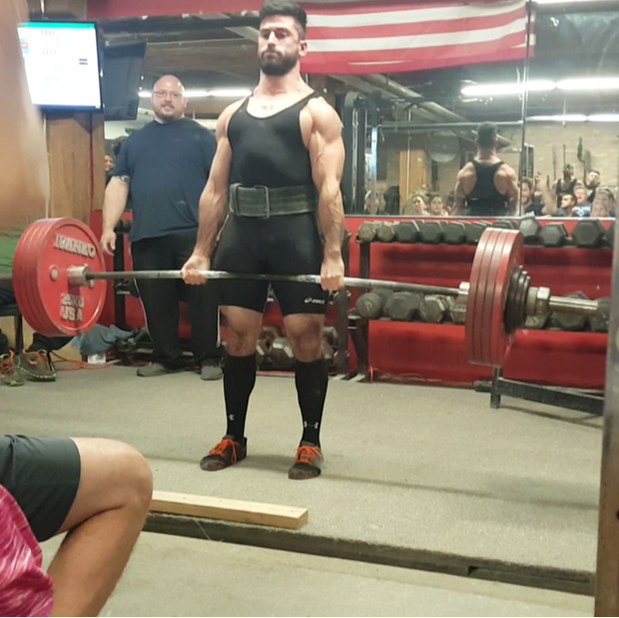
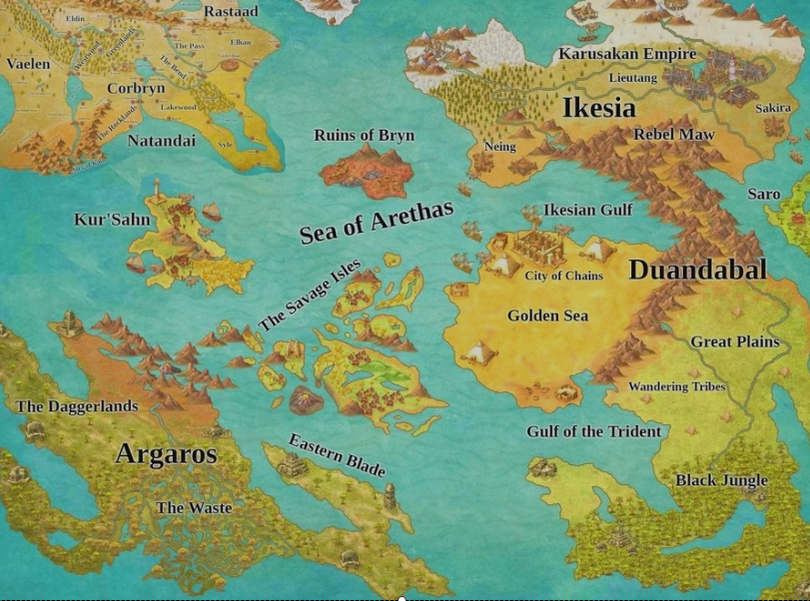
 RSS Feed
RSS Feed
